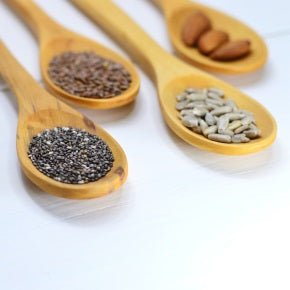Nutrition is vitally important in supporting our bodies in staying healthy but recent research suggests that it could go as far as playing a role in combatting antibiotics resistance, oxidative stress and lowering our chance of life-threatening conditions.
Read more on the latest research here.
What do we really know about antioxidants?
The term “antioxidants” brings with it some confusion and is often dismissed as merely a health trend or buzzword. However, this article by Medical News Today attempts to set the record straight on this group of compounds.
According to the article “Antioxidants are compounds that reduce or inhibit cellular damage through their ability to neutralize molecules called free radicals.” And “Free radicals are molecules that have one or more unpaired electrons in their outer orbit, making them unstable and highly reactive. The body creates them through normal endogenous metabolic processes, including energy production.”
The article goes on to elaborate on oxidative stress, which can occur when there are too many free radicals in the body. While free radicals play an important role in keeping the body healthy through contributing to normal physiological function, too many can be damaging.
Antioxidants, as well as being obtained through antioxidant supplements, occur naturally in a range of foods such as grapes, apples, berries and pears, which all contain polyphenol antioxidants, while brightly coloured fruit and vegetables are a source of carotenoids, which is another group of antioxidants.
Research on antioxidants is ongoing but ensuring a healthful supply through fruit and vegetables can be very beneficial to overall health.
The nutrient that could support the body against bacterial infection
Scientists have found that taurine could help support the body’s defences against bacterial infection. The scientists involved are from five institutes of the National Institutes of Health and have described the discovery as having the potential to assist efforts searching for alternatives to antibiotics.
The findings, as reported in this Science Daily article, came from studies that involved studying microbiota, which is trillions of beneficial microbes that live in the gut. The studies were conducted in an attempt to find natural alternatives to antibiotics, which harm microbiota and become less effective as bacteria develop drug resistance. Taurine, which is an amino acid that helps the body digest fat and oils, was found to be the trigger for Deltaproteobacteria activity; this activity is involved in fighting bacterial infections.
It was found that a single mild infection was enough to prepare the microbiota to resist subsequent reinfection and that the liver and gallbladder can develop long term infection protection as a result of their synthesis and storage of bile acids containing taurine.
Could gut health be a better indicator of health risks than genetics?
Further to the previous study assessing the role of gut microbiota, another group of researchers have found that gut health could be a better indicator of health risks than genetics. According to this article, a person’s risk of developing diabetes, heart disease and obesity could be better predicted by the particular bacterial species living in the gut than their family medical history.
Moreover, the researchers found a strong link between the food an individual ate the health of their gut microbiota; the more diverse their diet and the fuller of healthy fruit and vegetables as well as healthy animal products like oily fish, the higher the levels of beneficial microbes in their gut.
According to the researchers, this suggests that a person’s diet could be adapted to lessen their risk of such conditions and improve their general health. One of the study’s authors, Dr. Sarah Berry, a senior lecturer in the Department of Nutritional Sciences at King’s College London, said, “Given the highly personalised composition of each individual[‘s] microbiome, our research suggests that we may be able to modify our gut microbiome to optimize our health by choosing the best foods for our unique biology”.
Share your thoughts
Agree with the findings in this week’s Nutrition News? Share your thoughts with us on Facebook and Twitter.
 Alison is Director and Founder of Metabolics who writes about Metabolics updates, events and natural healthcare. Her experience and passion for natural supplements and healthcare comes from her years of experience as a practising osteopath, having founded Metabolics in her search for high quality, natural products in her own work. Alison has been a qualified and practising Osteopath since 1981 and regularly gives seminars on a range of healthcare subjects to the wider practitioner community helping share her knowledge and experience.
Alison is Director and Founder of Metabolics who writes about Metabolics updates, events and natural healthcare. Her experience and passion for natural supplements and healthcare comes from her years of experience as a practising osteopath, having founded Metabolics in her search for high quality, natural products in her own work. Alison has been a qualified and practising Osteopath since 1981 and regularly gives seminars on a range of healthcare subjects to the wider practitioner community helping share her knowledge and experience.




